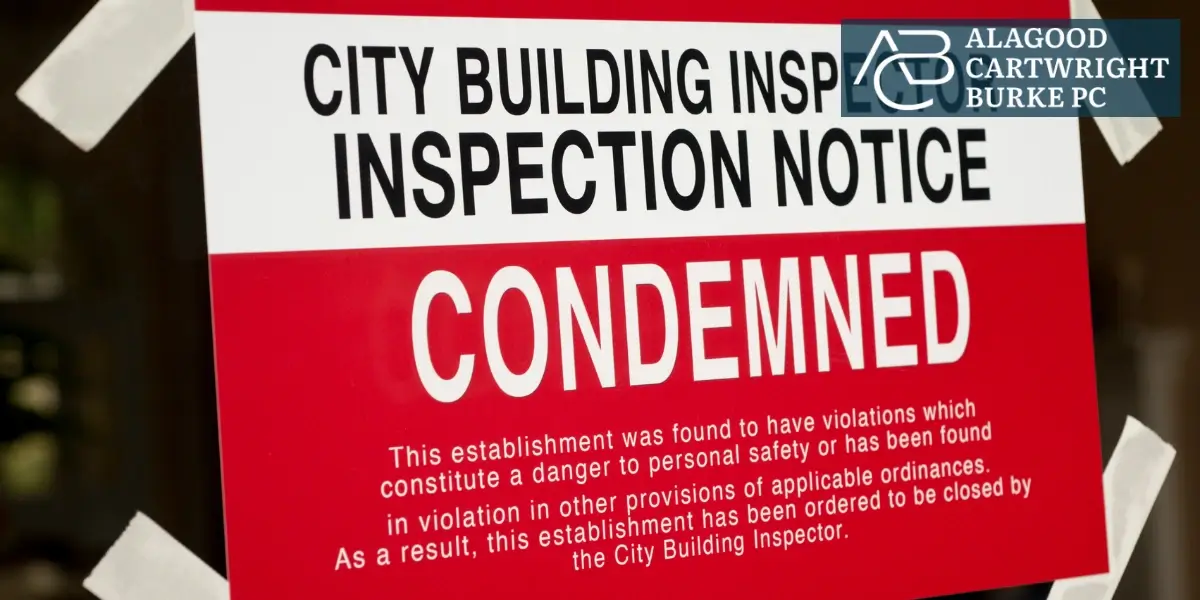Condemnation Timeline For Property Owners in Denton County, TX


Sometimes referred to as eminent domain, condemnation is the legal process by which the government or certain authorized entities take private property for public use. The U.S. Constitution and Texas law require that property owners receive just compensation, but few property owners understand the process. Knowing the condemnation timeline for property owners in Denton County, TX, can help you navigate the process with confidence and clarity.
Condemnation Laws in Texas
Condemnation is grounded in the concept of eminent domain, which allows government entities to acquire private property for projects. This can include needing it for highways, utilities, schools, or public infrastructure.
Key points under condemnation laws in Texas include:
- The taking of the property must be for public use or necessity.
- The property owner is entitled to receive just compensation, which means fair market value.
- Property owners have the right to challenge the taking itself or the amount of compensation offered.
Because condemnation cases involve complex procedural steps, deadlines, and negotiations, many property owners go the route of hiring a condemnation lawyer early in the process to fully ensure their rights.
The U.S. claims about $4 billion in property through eminent domain yearly. The Institute for Justice reports that the majority of these acquisitions occur in urban areas, where the median annual income is less than $19,000.

The Condemnation Process in Denton County
The condemnation process follows a series of steps. Here’s what you can expect:
- Initial project announcement and planning. The process often begins long before you receive any official notice. Public projects are planned and budgeted at the city, county, and state levels. You may hear about proposed developments, such as highway expansions, utility corridors, or pipeline installations. Property owners generally can’t stop the planning, but staying informed can help you prepare.
- Notice of intent to acquire property. If your property is targeted, you’ll likely receive a notice of intent from the condemning authority.
- Appraisal of the property. The condemning authority hires an appraiser to determine what it believes is the fair market value of your property. The appraisal may not reflect the full value of your land, business losses, or relocation expenses.
- Offer to purchase. Based on their appraisal, the condemning authority will make a formal purchase offer. Texas condemnation laws require the property owners to receive a written offer before legal proceedings can begin. At this stage, many owners accept the initial offer out of fear or lack of knowledge.
- Negotiation period. Negotiations between the property owner and the condemning authority occur after the initial offer.
- Filing of condemnation petition. If negotiations fail, the condemning authority files a petition with the Denton County District Clerk’s Office. This is the official start of the legal condemnation case.
- Special commissioners’ hearing. At this hearing, both the condemning authority and the property owner present evidence about the value of the property. Appraisals, expert testimony, and other evidence can play a role. The commissioners issue an award of compensation.
- Award and possession. If you accept the award, the case concludes, and you receive the payments. If you disagree, you can file an objection and request a jury trial.
- Trial and appeals. If the award is contested, the case may go to trial before a jury. The jury determines the fair compensation amount.
- Resolution and payment. Once all appeals are settled, the property owner receives the final payment.
The Timeline for the Condemnation Process
The condemnation timeline for property owners in Denton County, TX, varies based on the complexity of the case, the willingness of parties to negotiate, and court availability. Simple cases may resolve within a few months, but disputed cases can take much longer.
Hiring a knowledgeable Denton County condemnation attorney ensures delays are managed effectively.
Why You Should Choose Alagood Cartwright Burke PC
Alagood Cartwright Burke PC holds deep roots in Denton County and extensive experience navigating complex condemnation laws in Texas. The firm has successfully handled numerous condemnation cases, securing fair compensation for its clients.

FAQs
How Long Does the Condemnation Process Take?
The condemnation process can take a long time, depending on the complexity of the case. The timeline varies based on whether the property owner accepts the government’s initial offer or disputes the compensation amount. If negotiations stall, the case moves to court, where hearings and appeals may extend the process. An uncontested condemnation may resolve quickly, while contested cases take longer.
Who Decides if a House Needs to be Condemned?
The decision to condemn a house is usually made by the local government authorities, such as a city or county building department, housing authority, or health department. Inspectors evaluate the property’s condition to determine if it’s unsafe for occupancy due to structural issues, fire hazards, and health risks, like mold or pest infestations. After inspection, the agency may issue a condemnation order.
When Can a Property Be Condemned?
A property can be condemned under two main circumstances. This includes public use and safety concerns. In eminent domain cases, the government or another authorized entity may condemn private property for subjects such as highways, utilities, or schools. In safety-related cases, local authorities may condemn a property if it poses health or safety risks, such as structural instability, fire hazards, or severe code violations.
What Is the Process of Condemnation in Real Estate?
The condemnation process in real estate generally follows these steps. First, the identification of need is when a government agency or entity determines whether the land is required for public use, such as roads or utilities. The entity then attempts to buy the property at a fair market value. A petition is filed if negotiations fail, and they file a condemnation legal claim. Independent commissioners assess compensation owed to the property owner. Either party may then challenge the court’s decision.
Hire a Condemnation Lawyer
If your property is at risk of condemnation, don’t wait until it’s too late to reach out for legal help. Contact Alagood Cartwright Burke PC to schedule a consultation, and let us guide you through the steps of the condemnation process.

